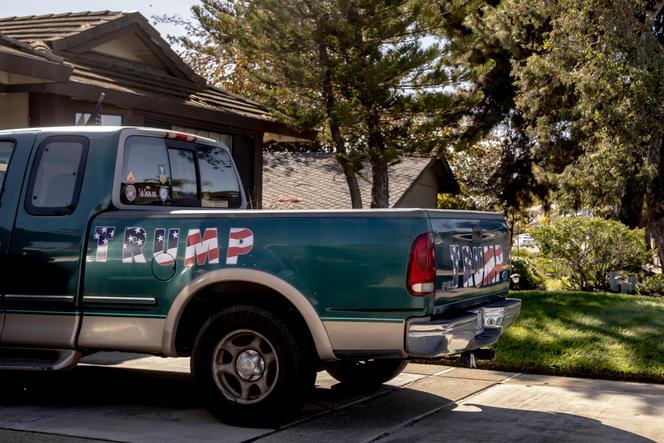
Donald Trump didn’t make electric cars a central theme of his campaign, but he did make a point of repeatedly criticizing them as a way to spar with his opponent, whom he wrongly accused of wanting to ban gas cars. Trump, now the president-elect, intends to take up the issue as part of the strongly protectionist policy he intends to pursue. This is an especially sensitive topic for his base: According to a Gallup poll published in April 2023, 71% of Republicans refuse to consider buying a battery-powered vehicle, compared with just 17% of Democrats.
For Trump, electric cars are a kind of heresy. He disputes their environmental merits and accuses them of paving the way for Chinese hegemony, bankrupting American car manufacturers and creating massive unemployment for blue-collar workers. In contrast, Joe Biden’s presidency actively promoted them, with major tax breaks – up to $7,500 (or €6,982) for the purchase of a new car and $4,000 for a used one – playing a key role. As a result, electric cars went from comprising 1% of registrations in 2019 to 7% in 2024. In August, Trump told Reuters that he intended to eliminate these benefits.
As president, Trump could also challenge the $7.5 billion public investment program aimed at accelerating the construction of a network of 500,000 charging stations across the United States. The subsidies paid to equipment manufacturers to help them adapt to the shift to electric vehicles are also in jeopardy. Similarly, some Republican members of Congress have announced their intention to put an end to the waiver granted to California (followed by 17 other US states) authorizing it to impose environmental standards on automakers that are much stricter than the federal regulations are.
Elon Musk’s interests
Clearly, the president will not be adopting his predecessor’s stated goal of having 50% of car sales in the United States be electric by 2030. However, Trump’s closeness with Tesla CEO Elon Musk, who contributed generously to his campaign, gives reason to believe that the cause of electric vehicles might not be entirely hopeless under the second Trump presidency. “I’m for electric cars. I have to be, because Elon endorsed me very strongly,” Trump admitted bluntly.
Tesla, which controls almost half of the US market for battery-powered vehicles, has received $2.8 billion in government aid since it was founded in 2003 and profits handsomely from selling its carbon to competitors; it does not want to see the market stifled. Musk is also looking to advance in another field, autonomous vehicles, and is planning to launch his “Cybercab” robo-taxi in 2027. This ambition would call for loosening the restrictions on operating permits, which are currently granted on a case-by-case basis on the local level. In the future, Musk would like to see this under federal control.
You have 31.41% of this article left to read. The rest is for subscribers only.





